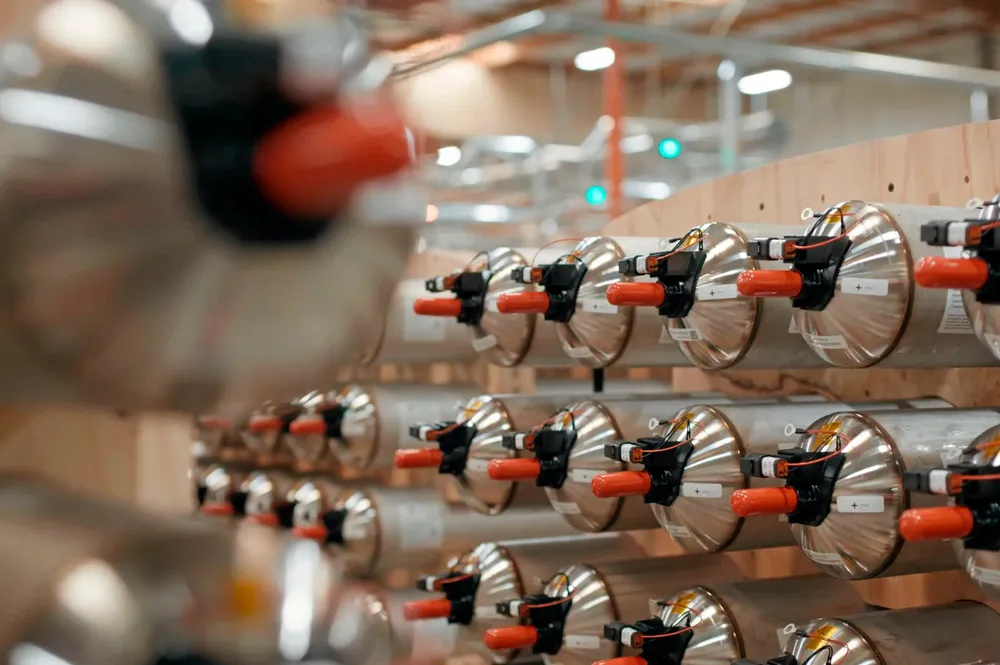RWE trials NASA battery tech for renewable energy projects
California start-up has been commercialising NASA battery tech that it claims does away with fire risks of incumbent lithium-ion technology

German power giant RWE is trialling battery technology pioneered by NASA and used on the International Space Station as a new energy storage solution for its wind and solar projects.
RWE will trial the nickel-hydrogen batteries as part of a renewable energy pilot project at its US testing facility in Milwaukee, Wisconsin.
California start-up EnerVenue, which launched in 2020, has developed the batteries based on NASA technology used to power the International Space Station, Hubble Space Telescope and Mars Rover.
“Grid-scale energy storage that promises to be safer, flexible, and more durable offers great potential for meeting our continuously growing demand for energy,” said Andrea Hu-Bianco, senior vice president of engineering at RWE Clean Energy, adding that meeting clean energy goals will require “several capable and scalable solutions.”
Its Milwaukee pilot programme acts as an “innovation incubator to test lithium and beyond-lithium battery technology, power conversion system and controls,” said Bianco.
Ramping up global energy storage capacity is crucial to the energy transition. Dozens of countries, including the G7 group of leading economies, have signed up to a target of hitting 1.5TW of energy storage capacity globally by 2030, six times 2022’s levels.
The energy storage sector is currently dominated by hydropower, which is limited to mountainous regions and is expensive and time-consuming to build; and lithium-ion batteries, which pack huge amounts of power but suffer from supply chain vulnerabilities, an inability to store power for long periods and concerns over fire risks.
The limitations of these technologies have encouraged substantial development in alternate long-duration energy storage (LDES) technologies, especially in the US amid the surge in subsidies from President Joe Biden’s landmark climate law.
EnerVenue says its nickel-hydrogen batteries can cycle up to three times daily and offer an expected lifetime of 30 years and 30,000 cycles.
The vessels offer “improved safety without the thermal runaway or propagation risk exhibited by incumbent lithium-ion technologies – eliminating the need for expensive, auxiliary fire suppression solutions,” it says.
EnerVenue’s storage vessels are “built to meet the demands of even the most diverse and challenging clean energy applications, providing a reliable, long-lasting, and sustainable answer for large-scale renewable energy projects,” said its chief technology officer Majid Keshavarz.
“Collaborating with a leader like RWE allows us to showcase the capabilities of our technology and demonstrate how it can drive the future of clean energy expansion and grid resilience.”
(Copyright)